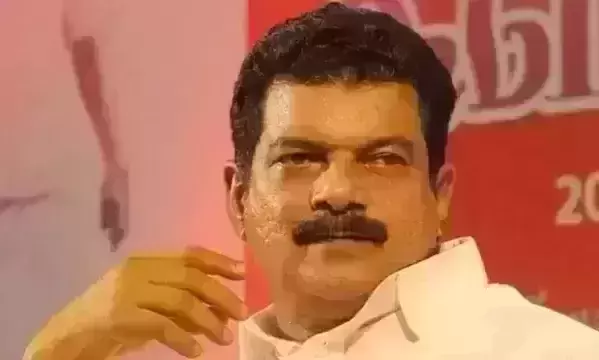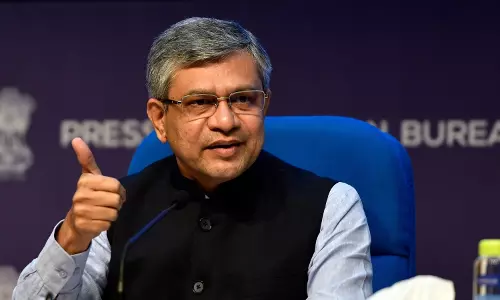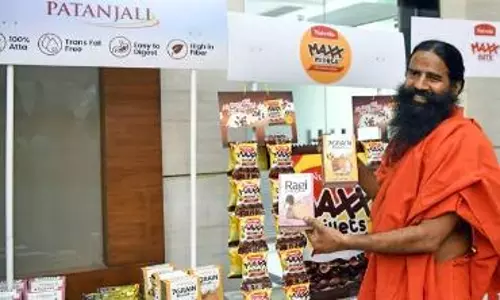
Kashmir: Actual situation will unfold after curbs are lifted completely
text_fieldsNew Delhi: Two months after the abolition of special status of Jammu and Kashmir granted under Article 370, an uneasy calm prevails in the Valley, even though there have been some sporadic incidents of stone-pelting incidents and protest marches.
But, the actual situation will unfold once the restrictions are removed completely and leaders of the various regional parties are released from detention in Kashmir.
The question is what will they do after being released? Will they choose to go on a war path with the government and if they do, then how far will their cry go?
Abrogation of special status has led to a sort of existential crisis for the Valley leaders because their politics has been driven by the fissiparous philosophy of Article 370.
The revocation of special status will impact the political narrative in the Valley. No longer can the politics of flipping coin work. In the post-370 scenario, it is either pro or anti stance, and the space for autonomous entity has ended.
The mainstream politicians cannot toe the separatist line and the separatists are feeling psychologically defeated after the failure of the Muslim world to rise in support of them.
Of all the Valley mainstream political leaders, NC's Farooq Abdullah has been the most vocal in demanding autonomy for the state.
On June 26, 2000, NC-led state government got an ‘autonomy' resolution passed in the Assembly. The resolution, which talked about setting the clock back to pre-1953 position before his father Sheikh Abdullah was arrested, was, however, rejected by the then central government headed by Atal Bihari Vajpayee.
While Farooq Abdullah has been slapped with the stringent Public Safety Act (PSA), his party MP Akbar Lone has given a peek into the future course of action by the NC. He said his party will contest elections even as it wants NC, PDP and all other regional parties to come together to agitate for restoration of Article 370.
By talking about elections, NC has shown faith in the Constitution, but there is a big question mark on the unity efforts.
The two former Chief Ministers Omar Abdullah and Mehbooba are known rivals.
During their detention at Hari Niwas Palace in Srinagar they are said to have quarreled so badly that the administration was forced to shift one of them from the palace.
Then there is Peoples Conference leader Sajjad Lone, who has been projecting himself as an alternative to Abdullahs and Muftis.
The IAS-turned-politician Shah Faesal made the quickest move in petitioning the Supreme Court against the abrogation of special status.
The Congress' Ghulam Nabi Azad seems to be working aside his party on this matter so far. Congress has gone quiet on the matter after Pakistan used at international fora Rahul Gandhi's statements on the situation in the Valley.
For the mainstream politicians in the Valley, the scope of choice is limited now.
They can hold protests, chose to go to the Supreme Court, seek some kind of special status and demand the restoration of the statehood.
They may take time to reconcile to the present situation but the choice before them is not much and the way outs are not many. They can fight for restoration of the statehood and some kind of special provisions like those in Himachal or Uttarakhand.
Another major factor that is likely to weigh down upon all the regional outfits of Kashmir, be they mainstream parties or separatists, is the shattering of the myth that the Muslim world would support Pakistan when it rakes up the issue of Kashmir.
Though Pakistan is openly trying to instigate Kashmiris, the hard reality is that in doing so it has
exposed itself as a terror-promoting country.
Pakistan's playmate in the Valley, the Hurriyat Conference -- a conglomerate of several separatist and pro Pakistani groups -- is a shattered force today. And most of them are facing corruption and anti-terror charges, and some have been put behind bars.
With Jammu and Kashmir being converted into a Union Territory, the Centre has the right to directly intervene in the security, and law and order concerns within the state.
The central government is trying to push the narrative of development and progress and has announced a few sops to give the general people in Jammu and Kashmir some positive ideas.
While the situation in Jammu is far better and restrictions have been lifted to a large extent, the real challenge is in the Valley.
As of now, the situation may be described as under control or peaceful, but the undercurrent is that of shock and feeling of loss.
In the absence of any kind of political leadership, stealth diktat of militants is working on the minds of the people. Posters and pamphlets are circulated to convey threat messages, asking people not to open shops or send children to schools, to stay away from offices, etc.
The government has made it clear that there is no curfew, but people are observing a kind of ‘self-curfew' following threats from terror groups, which have threatened killings and suicide bombings on defiance of their orders.






















